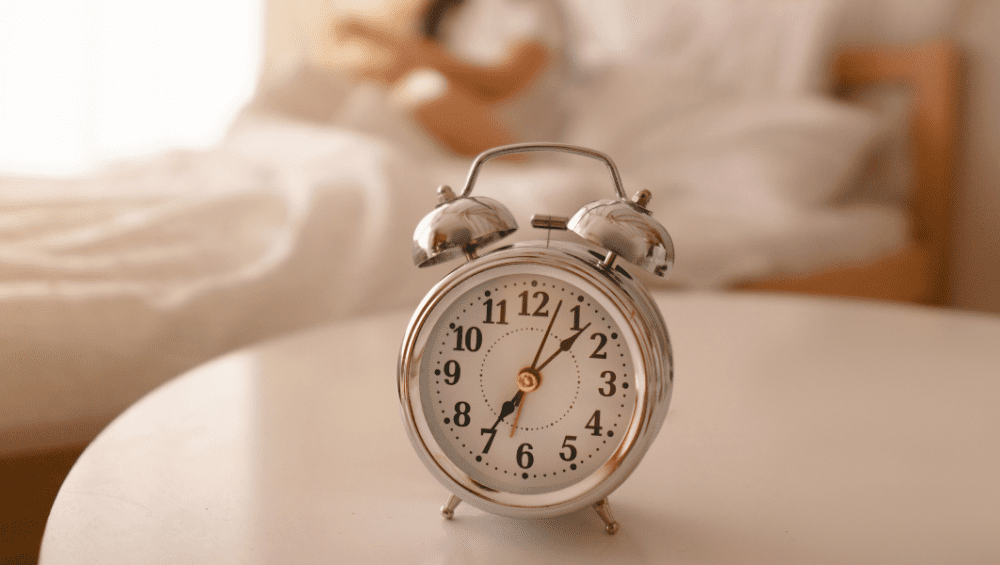Now that school is back in session and our chaotic summer plans have come to an end, we have an important choice to make when it comes to our routines. We can either create a routine that works for us, or we can suffer due to the lack of one. Our ability to stick to certain routines can make or break us, which is most true regarding self-care and health optimization.
In my assessments with my clients, determining and optimizing daily routines, particularly those associated with our health, is a major piece to understanding where there is an opportunity for simple improvement in lifestyle change. As we know, stress of all sorts can cause an inflammatory burden and initiate uncontrolled inflammation. When it comes to health habits, there are three things that I look for when assessing a patient’s daily self-care routine.
- Consistent sleep and wake times
- Morning and evening self-care routines
- Personal stress management practices
Sleep Routine: Consistent Sleep and Wake Times
Many of my clients who are suffering from chronic health conditions note relatively inconsistent sleep patterns and routines. Much research has been conducted on this topic, with a consistent finding – humans function better when they have consistent sleep and waking times.[1]
One of my first recommendations to my clients often revolves around finding an ideal time to get to bed and allow the body to enter the rest and recover mode of the parasympathetic nervous system, initiating natural mechanisms of sleep to kick in.
I have found that the best way to do this is to reverse engineer your ideal bedtime based on when you need to wake up. Having a consistent waking time is the best way to create a positive routine, and this consistency helps to promote an optimal healing pattern in the body. This is of the highest importance when it comes to mental and physical health. Most people don’t get the ideal 7-8 hours of sleep because they stay up too late and then wake up with minimal energy after snoozing their alarm multiple times. This is a recipe for disaster when it comes to your routine.
Morning and Evening Self-Care Routines
The healthiest and most successful people in the world all have one thing in common, and that is some sort of self-care optimization routine in the morning and/or the evening. They all consider this to be a sacred time and have built very specific routines that they have found to serve them personally in the best possible way.[2]
One routine that I love and use with my clients is called “bookending your day.” When my clients are suffering from chronic health challenges, this routine helps them begin and end their day with personal stress management and health optimization tools. One specific practice that I have them incorporate into their bookends is vagus nerve support, including the use of breathing practices and vagus nerve stimulation.
One of the most common pieces of feedback that I hear from my clients is that the use of Vagus Nerve Stimulation is particularly beneficial in improving their sleep quality, resulting in better energy and focus the next day. A study out of the US Air Force using Vagus Nerve Stimulation showed significant improvement in critical thinking, cognition, and energy in the group that used this tool for vagus nerve support and no change in the control group that did a sham stimulation![3]
Bookending your day with vagus nerve support and stimulation is a very powerful way to improve daily health routines and support your recovery.
Personal Stress Management Practices
Within and between the daily bookends, each of us can find beneficial stress management practices that work best for us, and almost anything is on the table here.
This can be as simple as a five-minute focused breathing practice, drinking filtered water with salt and lemon, going for a short walk around the neighborhood, thirty minutes of stretching or weight training, or even just a two-minute session with your Truvaga. Whatever your heart desires and your body tells you is helping you to feel, move and function better is available for you to use effectively.
Creating a positive self-care routine can be transformative to your health. But don’t let all of this information overwhelm you. Starting a simple daily routine to check in with your body can be the key to unlocking better health and optimal function.
Sources
[1] National Library of Medicine, Sleep timing, sleep consistency, and health in adults: a systematic review, https://pubmed.ncbi.nlm.nih.gov/33054339/
[2] National Library of Medicine,Practices of Self-Care in Healthy Old Age: A Field Study, https://www.ncbi.nlm.nih.gov/pmc/articles/PMC10204451/
[3] National Library of Medicine, Cervical transcutaneous vagal nerve stimulation (ctVNS) improves human cognitive performance under sleep deprivation stress, https://www.ncbi.nlm.nih.gov/pmc/articles/PMC8192899/
Author bio:
Dr. Navaz Habib, is the bestselling author of “Activate Your Vagus Nerve,” and the newly released “Upgrade Your Vagus Nerve.” He is also the host of “The Health Upgrade Podcast.”
After graduating as class valedictorian from Canadian Memorial Chiropractic College in 2010 and went on to practice traditional chiropractic for years, until he utilized the power of functional medicine to transform his own health. Dr. Habib is the founder of “Health Upgraded” an online functional health consulting clinic, supporting optimal health by elevating the awareness and function of the vagus nerve.






